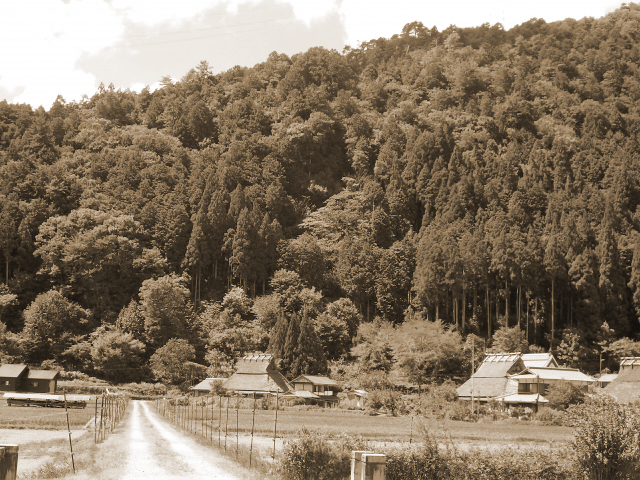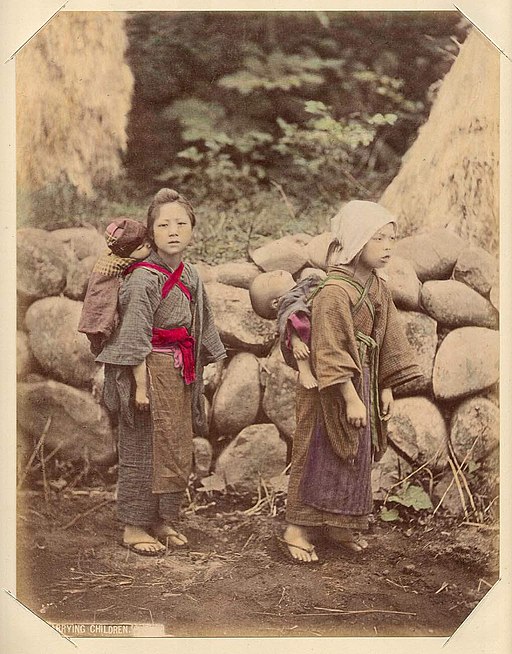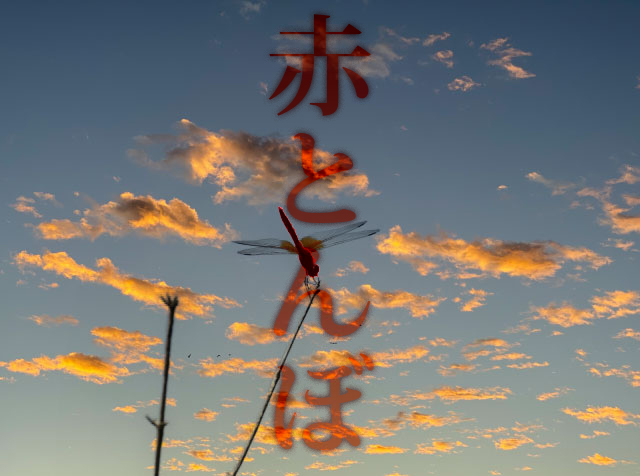Aka tombo
Yuuyake koyake no aka tombo
Oware te mitano wa itsu no hi kaYama no hatake no kuwa no mi wo
Kokago ni tsunda wa maboroshi kaJyuugo de neeya wa yome ni yuki
Osato no tayori mo taehatetaYuuyake koyake no aka tombo
Tomatte iruyo sao no sakilyricist:MIKI Rofuu
Composer:YAMADA Kousaku
in 1927
Red dragonfly
Sunsets and red dragonflies, it’s a little sunset
How old was I when she carried me on her back and I saw it?
The mulberry that grew in the mountain field,
Was the day when I picked it up in a small basket on my back was an illusion?
At the age of 15, my sister went to her bride
And the news from our home was cut off.
Red dragonfly with sunset, it’s small sunset
It stops at the end of the fence.

“Akatombo” is a beautiful song that sings of the heart filled with nostalgia as one watches the red dragonflies that fly from early to mid-autumn, as if stained by the setting sun.
The lyricist, MIKI Rofuu, is said to have been inspired by seeing a red dragonfly flying outside his window while teaching literature at the Hakodate Trappist Monastery.
The kanji for “akatombo” is written as follows.

About 100 years ago, in the early Showa period (early 20th century), mountain villages in Japan were very poor.

MIKI Rofuu’s mother ran away from home when he was five years old, and he was raised by a nanny girl. However, that “neeya” also married off at the age of 15.

In a time when food was scarce, this may have been part of the so-called “kuchiberashi,” a way of trying not to feed anyone other than the work force of the farm.
Later, when the author left for the city, he no longer received letters from his hometown. How must Rofuu have felt when he lost his family?
Such loneliness was entrusted to “Akatombo,” a song widely loved as a representative Japanese song. However, although sentimental, this loneliness does not mean unhappiness. That is why it is widely sympathized with and has remained in the present age.
“Akatombo” won first place in the “Songs of Japan and Hometowns You Choose” conducted by the NHK National Executive Committee in a nationwide survey.
Monuments to “Akatombo” can be found all over Japan, which shows the popularity of the song.
The monument shown in the map below is one of them.
▼Jean=pierre rampal “Aka Tombo” flute
https://youtu.be/wW-nqh2IuWI




コメント